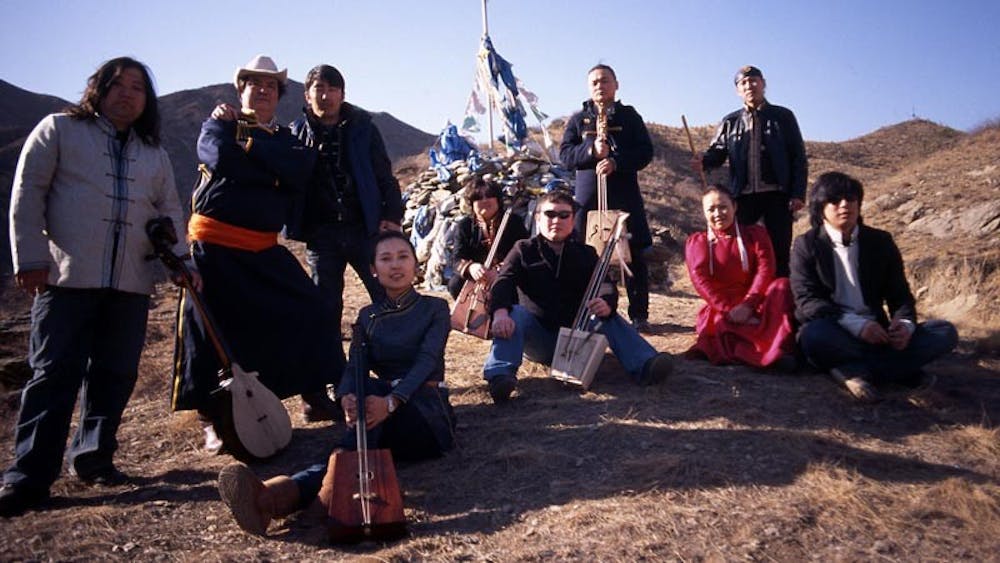I can still feel it now. The music of AnDa Union, a group of 10 musicians from Inner Mongolia, moved me in a way that few performances have. The raw vibrations of throat singing and the soaring notes of long song are still echoing in my head. In my mind, I can recall the musicians playing their horsehair fiddles and handmade copper flutes, completely surrendering themselves to the rhythms and sounds. In my heart, and in my soul, and in every bone of my body, I continue to feel the power of their music.
On Saturday, AnDa Union will be performing at Gammage, right here at ASU. At 7pm, for $10, students can attend this performance of traditional Mongolian music (adult tickets are $25). And you won’t regret it.
The group performed for my class on Tuesday, and they have been working with students and musicians in the Valley for the past week. Already well known throughout China, AnDa Union has shared their distinct music and culture with audiences around the world. Now, they make their second trip to the U.S., touring and teaching in 14 states.
When I first heard them, I knew nothing about Mongolian culture. The language, the traditions, the stories and the people were all foreign to me. But the music spoke to me, and on some human level, I understood.
In the words of poet Henry Wadsworth Longfellow, “music is the universal language of mankind.” Its beauty can transcend hate and prejudice and unite people through a common passion. You see it at rock concerts, where thousands of people are moving together, overwhelmed and controlled by the force of the beat. You see it at symphony concerts, where audiences connect to performers and works of art from all corners of the earth.
The connection I felt to the musicians of AnDa Union proves that people can communicate through music when they fail to communicate through language. Music bypasses the mind, and goes straight to the heart.
Tsetsegmaa, a singer for AnDa Union, feels the same way.
“Music is language of the soul,” she says, “It fulfills a basic human need, no matter who you are.”
She sings long song, a Mongolian style named for the long sounds of each syllable. She compares her singing to a bird; her voice soars across the land, through the wind and mountains, free and majestic. The reverberations of her voice still ring in my ears.
“When I sing, I imagine I am back in Mongolia. I am standing on a high plateau, facing the world, my dress fluttering and my hair pulled back by the wind,” she says.
Tsetsegmaa began singing as a child with her parents, and she was the only person chosen from her high school to continue specializing in music at a university. Since then, she has become one of the most celebrated long song singers in China.
But none of that changes the relationship she has with her music.
“Music is my person," she says. "Only through music can I understand myself.”
Watching her is a joy. She sings from her heart; there’s nothing fake or exaggerated about it. As much as I was impressed by her poised confidence, I was most drawn to a sense of vulnerability in her voice. She closes the distance between the audience and the performer. Her singing is personal, revealing and real.
“My soul opens when I sing,” she says. “I feel that my heart aligns with the universe.”
It’s such a beautiful and rare thing to witness. This Saturday’s concert offers a taste of Mongolian culture and an unforgettable musical experience. As hard as I’ve tried to encapsulate that experience in writing, those emotions cannot be contained in words. You have to be there to feel it.
Reach the reporter at tycai@asu.edu





